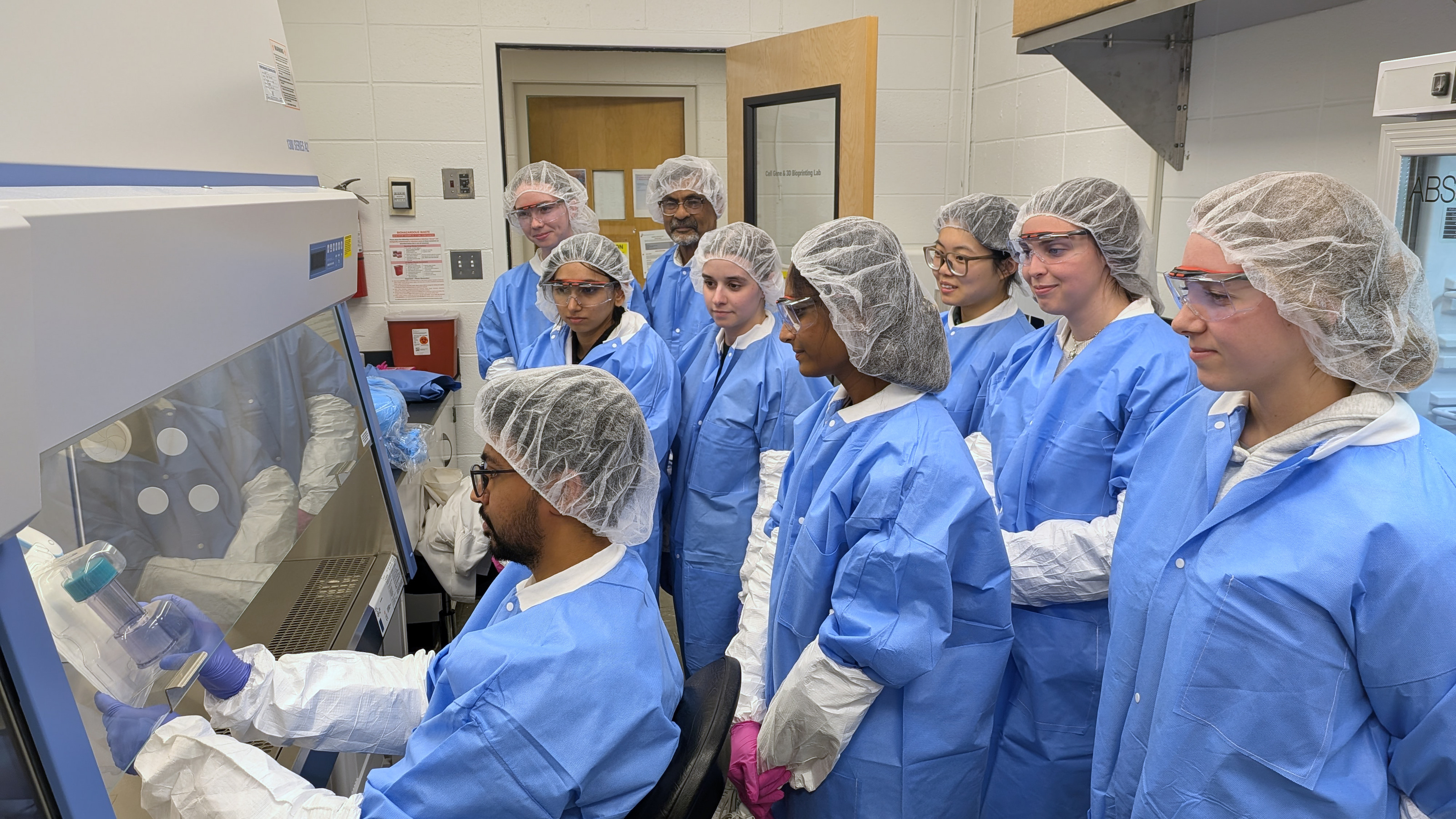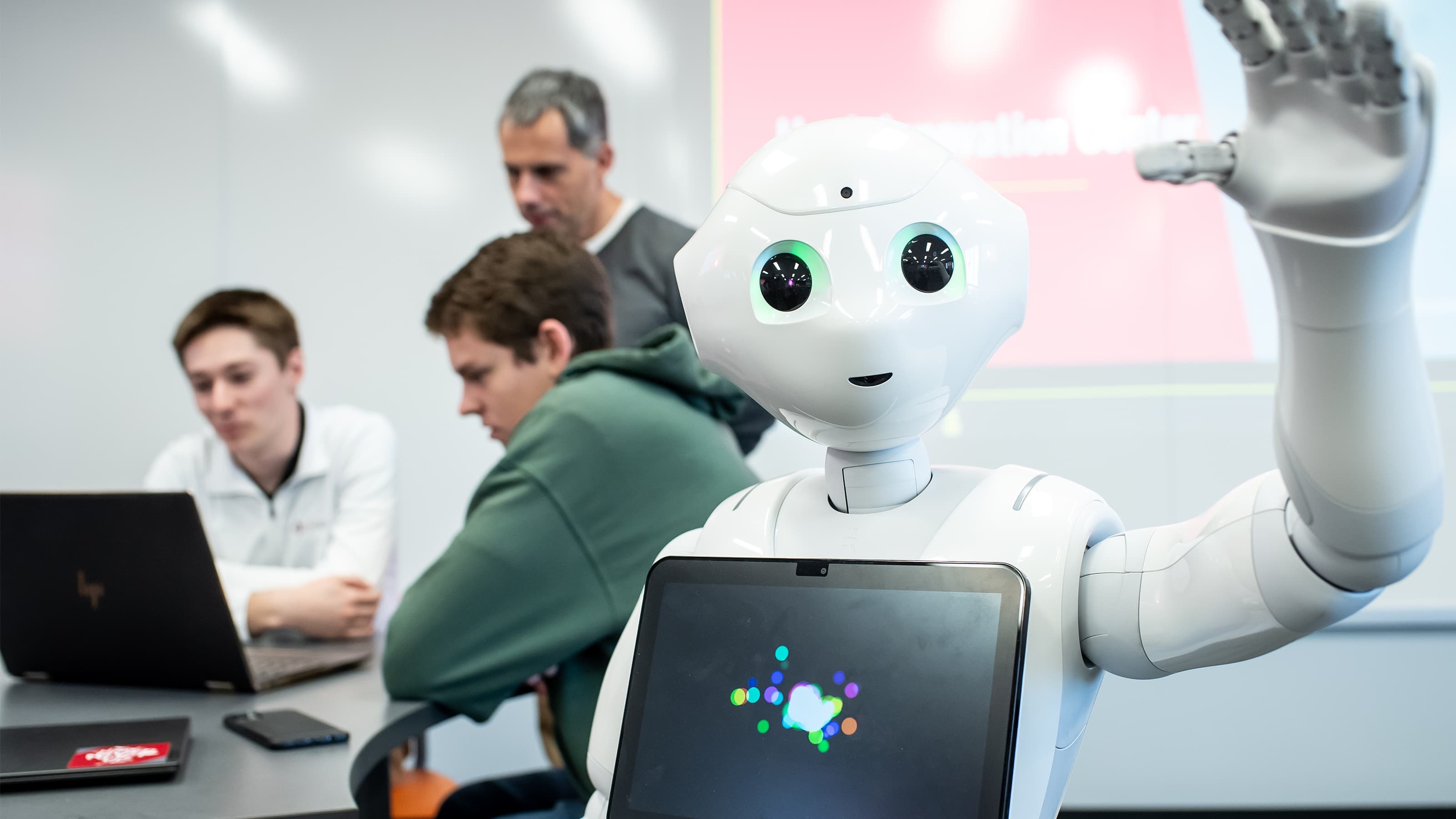Saint Joseph’s Paves the Way With AI in Food Marketing Course
The class is the first at an accredited university nationwide.

Alicja Spaulding, MBA, professor of food marketing, wants her students to think differently about artificial intelligence (AI).
“AI is no longer a competitive advantage,” Spaulding says. “It’s becoming like electricity, computers or the Internet – it’s not a matter of whether or not you’re using it, but how you apply it.”
Spaulding had this framework in mind when designing the curriculum for Saint Joseph’s University’s AI in Food Marketing course, a first-of-its-kind MBA course offered for seven weeks over the summer.
“I wanted to build a curriculum that gave students a foundation and a framework that helped them think about AI as a problem-solving tool,” she says. “How is it going to solve those impossible problems?”
According to Spaulding, AI is already impacting every facet of the food marketing world, from product innovation to distribution to supply chain management, helping to find solutions to problems that seemed previously unsolvable.
Take NotCo – a featured case study in the course, with Giulia Braghieri, CEO of The Kraft Heinz Not Company joint venture, joining as a guest speaker. Founded in South America, NotCo has applied artificial intelligence to reimagine food formulation. Using its proprietary AI platform, the company develops plant-based products that replicate the taste and texture of animal-based foods, including a plant-based milk that combines ingredients like pineapple and cabbage to mimic the flavor and creaminess of bovine milk.
“Now that you have this foundation, what does the future look like, and how can your business be prepared for it?”
Alicja Spaulding, MBA
professor of food marketingSpaulding asked her students to think futuristically, envisioning the future shopper and future grocery store experience for their in-class projects.
“They were really judgments of critical thinking and foresight, because those are the skills students are going to need to leverage AI in the best way possible,” Spaulding says of the projects. “Now that you have this foundation, what does the future look like, and how can your business be prepared for it?”
Emma Campbell, associate director of recruiting for the Academy of Food Marketing, took the course as part of her graduate certificate in food marketing.
“When you start to consider AI in food marketing, the floodgates just open — there’s so much potential,” Campbell says. “AI and emerging technologies pair so well with the food world because it’s an industry that’s extremely dynamic. You never have the same day twice; trends and consumer preferences are always changing, and you have to keep learning to keep up.”
In addition to hearing from guest speakers already using AI for their businesses, students shared their own experiences applying the technology to their work.
“There were people like myself in the class who were hearing about a lot of this technology for the first time, and then there were people in the class who are in the industry and experiencing this technology in their grocery stores and manufacturing as we speak,” Campbell says. “I left the course feeling like I had a deep understanding of the real-world impact of the technology.”
This course places Saint Joseph’s and the Haub School of Business at the forefront of the growing AI industry. According to Spaulding’s research, this is the first AI-focused food marketing course available at an accredited university.
“We’re considered national leaders in the food marketing space, and it’s important for our future leaders to have the combination of creativity, critical thinking and problem solving that comes with these discussions about AI,” Spaulding says.



